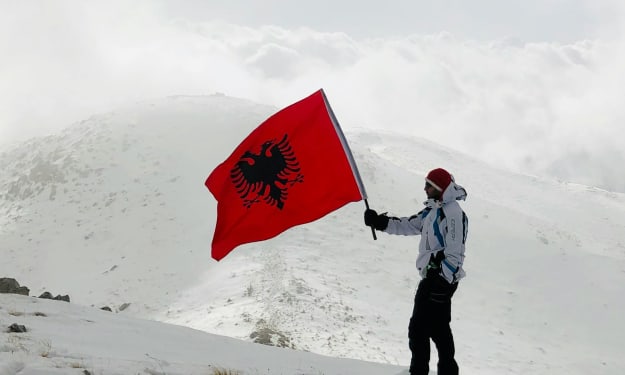The Fascinating Journey of Andorra's History: From Ancient Legends to Modern Prosperity
Discover Andorra's History Through Its Unique Political System, Cultural Heritage, and Economic Transformation
### The History of Andorra
**Ancient and Medieval Periods**
Andorra, a small landlocked country nestled in the Pyrenees between France and Spain, has a history dating back to the times of Charlemagne. According to legend, Charlemagne granted a charter to the Andorran people in 805 as a reward for their assistance in fighting the Moors. This charter granted the Andorran valleys autonomy and protection from feudal lords.
During the 9th century, Andorra was part of the Marca Hispanica, a buffer zone created by Charlemagne to protect Christian Europe from Muslim incursions. The region was governed by the Count of Urgell, and in 988, Count Borrell II of Urgell gave Andorra to the Diocese of Urgell in exchange for land in Cerdanya. This established a long-lasting relationship between the Bishop of Urgell and Andorra.
**Feudal Struggles and the Paréage Agreement**
In the 11th and 12th centuries, Andorra found itself in the midst of feudal struggles. Local lords, including the powerful families of Caboet and Castellbò, vied for control of the valleys. By the late 12th century, the Caboet family came into prominence. However, tensions between neighboring principalities, particularly between the Counts of Foix and the Bishops of Urgell, grew over control of Andorra.
These tensions culminated in the signing of the Paréage Agreement in 1278 between the Bishop of Urgell and Roger-Bernard III, Count of Foix. This agreement established a joint sovereignty, creating a unique diarchal system where Andorra would be governed by two co-princes: the Bishop of Urgell and the Count of Foix. This system of dual governance has persisted, with modifications, to the present day.
**Early Modern Period**
The joint sovereignty of Andorra faced numerous challenges over the centuries, particularly during periods of conflict between France and Spain. Despite this, the principality managed to maintain its autonomy largely due to its geographical isolation and the diplomatic skills of its leaders.
In 1589, Henry IV of France, who was also the Count of Foix, became King of France. This led to the French crown becoming one of the co-princes of Andorra, a role which the President of France retains to this day.
Throughout the 17th and 18th centuries, Andorra remained relatively peaceful, largely due to its neutrality and the isolation provided by the Pyrenees. The country maintained a feudal-like society with a largely agrarian economy. The General Council of the Valleys, established in 1419, served as the main political institution, handling internal matters and helping to maintain stability.
**19th Century: Turbulence and Reform**
The 19th century brought significant change and modernization to Andorra. The Napoleonic Wars and the subsequent political upheaval in Europe affected the principality. In 1806, Napoleon Bonaparte reaffirmed the traditional institutions and granted a new constitution, which preserved the co-principality but introduced some administrative reforms.
The Carlist Wars in Spain during the mid-19th century had repercussions for Andorra. Refugees and political exiles from neighboring countries found sanctuary within its borders. This period also saw increasing demands for modernization and reform from Andorra’s inhabitants.
**20th Century: Towards Modernization**
The early 20th century was a transformative period for Andorra. In 1933, France briefly occupied the country to suppress civil unrest. This incident highlighted the need for political reform and modernization. Subsequently, Andorra began to modernize its political structures, although significant changes were slow to materialize.
World War II saw Andorra maintain its traditional neutrality. The country became a smuggling route between Vichy France and Francoist Spain, which brought economic benefits but also challenges in maintaining its sovereignty and neutrality.
In 1970, significant social and political changes began. The country slowly opened up to the outside world, and in 1971, women were granted the right to vote. The economic structure also shifted from agriculture to tourism and finance, setting the stage for the modern Andorran economy.
**Contemporary Andorra**
The late 20th century saw further modernization and integration into the global community. In 1993, Andorra adopted a new constitution, transforming the principality into a parliamentary democracy while retaining the co-princes as ceremonial heads of state. This change was ratified by a popular referendum and marked the end of the feudal system.
Andorra joined the United Nations in 1993 and the Council of Europe in 1994. These steps solidified its status as a sovereign state and increased its participation in international affairs.
Today, Andorra is known for its tourism, finance, and high standard of living. The country's economy is primarily driven by tourism, attracting millions of visitors each year to its ski resorts and duty-free shopping. The financial sector, known for its favorable tax regulations, also plays a significant role.
**Conclusion**
From its legendary beginnings under Charlemagne to its current status as a modern, prosperous state, Andorra's history is a testament to its resilience and adaptability. The unique political structure, rich cultural heritage, and strategic neutrality have allowed Andorra to navigate the complexities of European history while maintaining its sovereignty and identity.
About the Creator
BackFromHell
I am an odd one wondering and hearing all kinds of brains squirming, and in my head, they are dieing to be eaten. As if every voice had an underlying pain regardless of its mission. As I feed on brains, I remember the memories of others.
Enjoyed the story? Support the Creator.
Subscribe for free to receive all their stories in your feed. You could also pledge your support or give them a one-off tip, letting them know you appreciate their work.






Comments
There are no comments for this story
Be the first to respond and start the conversation.